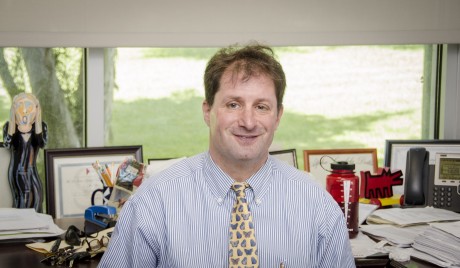
In the spring of this year, John Hermann, associate professor of political science, published an article titled “Legislator Judges: The Warren Court and Justices’ Use of State or International Policies in Criminal Procedure Cases.” This article is only the beginning of Hermann’s research on the Supreme Court.
“The Warren court is supposed to be the most liberal court ever and it assumed its own moral agenda, but what I found was that it relied on state and foreign laws,” Hermann said. “I’ve always been interested in how the Supreme Court makes decisions, and I started asking my students “˜why is the court doing this?'”
Hermann’s research idea stemmed from teaching a class on civil rights and liberties. “Miranda v. Arizona,” in particular, brought the subject to Hermann’s attention.
“I found something really interesting in cases that many people have heard of, like “˜Miranda v. Arizona.’ You get notified of your Miranda rights, but that’s not in the Constitution. When the Court’s ruling against the government and in favor of the individual, rather than the government, it is likely to use state laws that agree with it’s side, or in some cases foreign laws,” Hermann said. “It did that in “˜Miranda v. Arizona.'”
When Hermann became interested in this topic, he noticed that no one had written about it before. This void in the literature led Hermann to begin his research in 2012 on how the Supreme Court makes these decisions.
“The Court is ruling laws unconstitutional based on what other states already do, and that is how it is justifying its decision, which raises a lot of questions,” Hermann said. “It is not basing its decisions on the Constitution, which is what it is supposed to.”
Hermann hopes to send out the second part of his Warren court research in the next month. Currently, he is researching the ways in which the Supreme Court makes decisions regarding the issue of the right to privacy. His research involves going through a case-by-case process, with each case usually around 50 pages long.
“The biggest obstacle is learning how to balance research, teaching and advising,” Hermann said. “I hope to present my research on privacy in the spring, but it’s a long process.”






